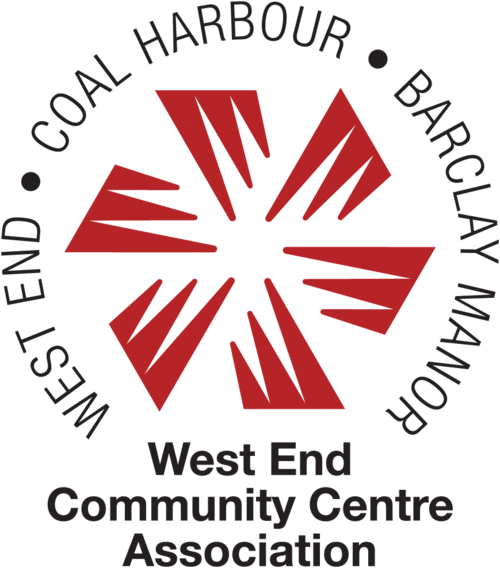A CLOSER LOOK
/CHURCH POLICIES RULE AT ST. PAUL’S HOSPITAL
No Abortions and No MAID Allowed
by John Streit
(click images to enlarge)
When construction began on the new St. Paul’s Hospital in March of 2021, NDP Health Minister Adrian Dix promised it would be home to “world-class public health care as well as research and a teaching centre that will help transform patient care for people in B.C.”
The current and future St. Paul’s are operated by Providence Health Care, a Catholic non-profit and largely taxpayer-funded organization.
The West End’s 129-year-old St. Paul’s Hospital.
At that same groundbreaking ceremony at 1002 Station Street on the back-filled False Creek Flats near Pacific Central Station, Providence Health CEO Fiona Dalton said “this is a once-in-a-lifetime opportunity to build an innovative new hospital and health campus from the ground up to better serve B.C. for the next 125 years. A new building will allow us to also re-examine how we will provide clinical care and improve our patient, family, and staff experience in a modern, more technologically advanced facility.”
But that “transformation” and “re-examination” as discussed by Dix and Dalton that day two and a half years ago did not result in the inclusion of Medical Assistance in Dying (MAID) or abortion services at the future hospital. This, despite MAID being legal in Canada since 2016 after the passing of Bill C-7. Instead, Providence Health has a ‘response lead’ on-site for MAID inquires. That person provides “system navigation and resource support to staff and physicians in responding to individuals and their families seeking information and clarification regarding medical assistance in dying (MAID),” according to Providence Health.
Services include:
Providing general information and answering questions about legislation and process
Consulting directly with clinical teams on how to respond to requests for MAID
Education to clinical teams, groups, and students
But this is not enough, according to Dying with Dignity Canada (DWDC), a national organization committed to “improving quality of dying, protecting end-of-life rights and helping people across Canada avoid unwanted suffering.”
Dying With Dignity Canada’s Vancouver chair Alex Muir.
Alex Muir is chair of the Metro Vancouver chapter, currently advocating for MAID at all hospitals. “We have written letters and met with provincial politicians to try to eliminate "forced transfers" from faith-based facilities, the most significant being Providence Health facilities. We currently have an online letter-writing campaign to end institutional religious obstruction, which includes forced transfers,” Muir said.
Providence Health is allowed to restrict certain services like MAID and abortions because of a so-called Master Agreement between the provincial government and the Denominational Health Association (DHA). Muir wants this to be changed. “Providence Health allows patients to apply for MAID and undergo the two medical assessments which are required to confirm eligibility, but they do not allow the procedure to occur on the premises. We are violently opposed to this position as they are publicly funded. This includes the new St. Paul's hospital. Despite receiving $1.3 billion of taxpayer dollars, Providence has declared that there will be no accommodation for MAID,” he told The West End Journal (TWEJ).
Muir cites the recent story of 34-year-old Samantha O’Neill who applied for MAID at St. Paul’s Hospital in April but had to be transferred to another hospital to receive the service. “It did not go well (understatement) so the family went public afterwards with their story. Health Minister Adrian Dix stated on July 4 that he would be addressing this issue with Providence Health, but we've heard nothing since. I wrote a letter to him a couple of weeks ago requesting an update,” Muir said.
In that letter, Muir writes:
“Following the media focus on the horrific forced transfer of Sam O’Neill from St. Paul’s Hospital in April of this year, you announced to the media on July 4 that ‘changes need to happen.’ You further stated that ‘With respect to patient transfers for MAID, I think that patient-centred care demands that the patient’s wishes come first. And I’m working with Providence Health Care and St. Paul’s to see that that happens.’
“As we have seen no public announcement on this topic since then, could you please advise the status of your discussions with Providence Health Care and St. Paul’s. What measures are being taken to ensure that we see the necessary end of forced transfers from publicly funded facilities in British Columbia?
We look forward to your reply.
Alex Muir
Chair, Metro Vancouver Chapter, Dying With Dignity Canada”
ARTIST RENDERING OF NEW ST. PAUL’S HOSPITAL. (HDR ARCHITECTS IMAGE)
TWEJ reached out to Health Minister Adrian Dix but had not heard back by press time.
Support for MAID remains strong in Canada according to a July survey from Ipsos conducted on behalf of DWDC. Seventy-three per cent of more than 3,500 respondents believe that “publicly funded health care facilities should be required to provide the full range of health care services, including MAID, if they have the proper equipment and staff to do so.” Eighty-two per cent agree that “the doctor should direct the patient to the assisted dying team in the local health authority to get more information and find out about the process for seeking an assessment in a timely manner from another clinician.” Eighty-three per cent of Canadians agree that “if a person meets all criteria for MAID, their wish to receive MAID should be complied with,” according to Ipsos’ results.
TWEJ emailed Vancouver Coastal Health (VCH) several questions about Medical Assistance in Dying at St. Paul’s Hospital but we were directed to Providence Health Care.
So far, Providence has not responded to our questions.
Nearly 40 percent of MAID services take place in hospitals, according to a 2019 Government of Canada report.
However, VCH has an extensive website devoted to MAID. It takes you through the four steps needed to legally end your life. Those include filling out a form starting the process, getting assessments from two different medical professionals and the waiting period which includes choosing the date of your death and, finally, assisted death.
VCH says “you can choose to have your assisted death in your own home, or in a facility setting that allows for assisted deaths. If you prefer another location, it can be explored. You may also choose to have family or friends with you when you receive your assisted death.”
According to VCH, the criteria for MAID is:
are at least 18 years of age;
are eligible for publicly-funded health services in Canada;
can make your own decisions about your health, and this decision in particular;
have a grievous and irremediable medical condition such that:
you have been diagnosed with a serious and incurable illness, disease, or disability;
you suffer unbearably from your medical condition, either physically or psychologically;
your medical condition has advanced or declined to the point where it cannot be reversed;
have been informed of the means that are available to relieve your suffering, including palliative care;
and, are making this request of your own free will and not because of pressure or influence from others.
Muir applauds provincial health authorities on how they handle MAID: “There are assisted dying teams embedded within each health authority. Vancouver Coastal Health is well staffed and very helpful for anyone wanting to access MAID. When we receive inquiries from the public about MAID, we direct them to the local health authority if they have specific questions about the process or need help finding an assessor,” Muir said.
West End NDP MLA Spencer Chandra Herbert says he has long felt St. Paul’s Hospital should offer what other hospitals offer in terms of things like MAID and abortion services.
“I understand the desire to have a religious exemption, but I think there certainly should be in the new hospital an accommodation. Maybe a certain wing is run by Vancouver Coastal Health as opposed to Providence. Certainly, what we’ve seen with folks having to go through a transfer out of the hospital at their most vulnerable time - I don't think anyone should want that to happen,” Chandra Herbert says.
Asked more about the forced transfers, Chandra Herbert says he has shared with Health Minister Adrian Dix that there does need to be a change. “This doesn’t work and I don’t think that it’s something that should continue. It (MAID) should be possible at St. Paul’s and that would be the more humane way of treating folks.”
In Vancouver, Muir says Dying With Dignity Canada helps in these ways:
Conducting information sessions for the public on (a) end-of-life choice, including Medical Assistance in Dying (MAID) and (b) advance care planning (Muir has done presentations to the West End Seniors Network and Health Initiative for Men [HIM]).
Providing an independent witness for someone who is applying for MAID but has no one in their life to fulfil this role.
Responding to individual inquiries about MAID and directing people to appropriate resources.
Advocating for changes to MAID legislation and trying to remove existing barriers.
Muir is hoping the letter writing, reaching out to politicians, and writing op-ed pieces pays off in time for the opening of the new St. Paul’s Hospital.
“Everyone has a right to experience a good death and avoid unnecessary suffering. Planning now for end-of-life care is the best way to ensure you obtain the treatment you want and the peace of mind you deserve,” Muir advised.
RELATED LINKS
DWDC Letter writing campaign - Stop institutional religious obstructions in B.C.





